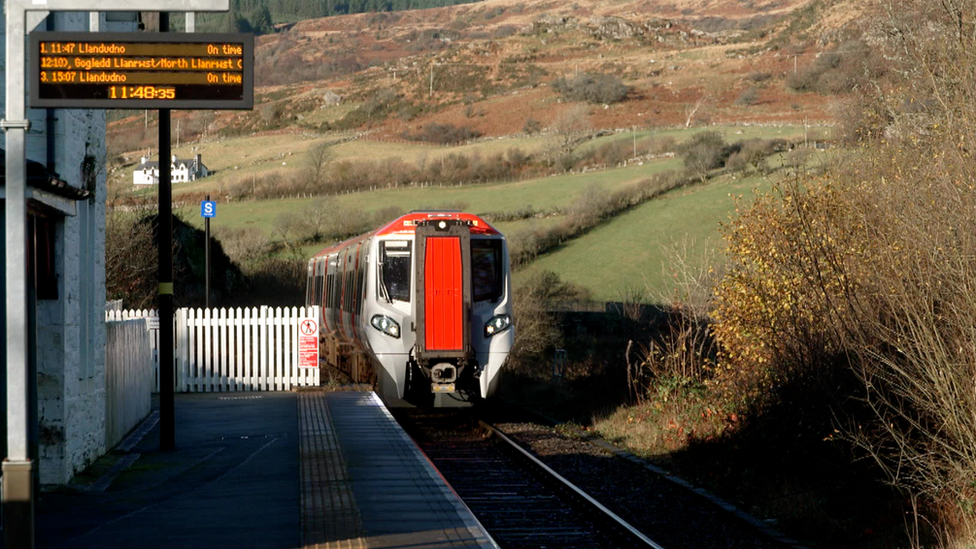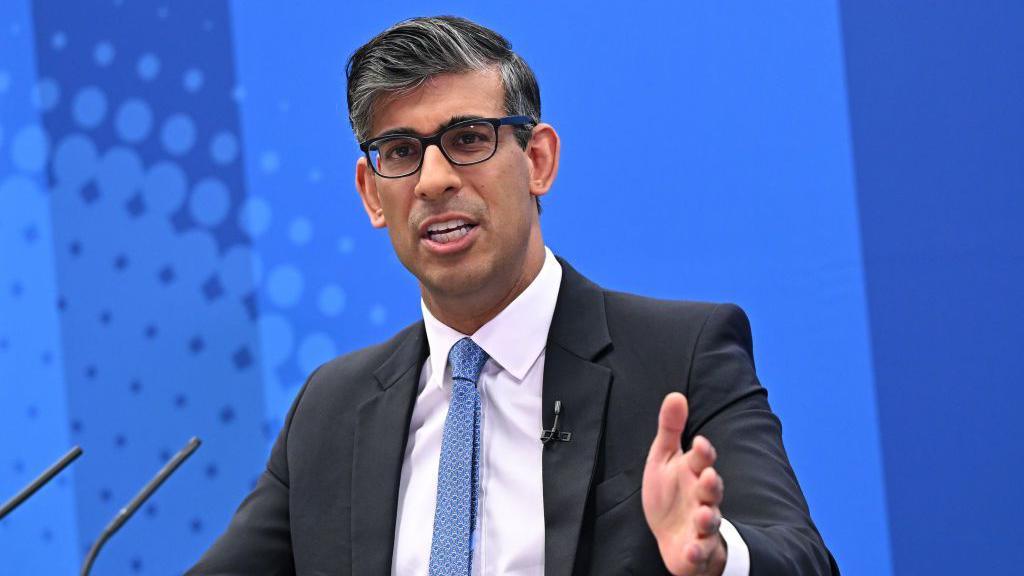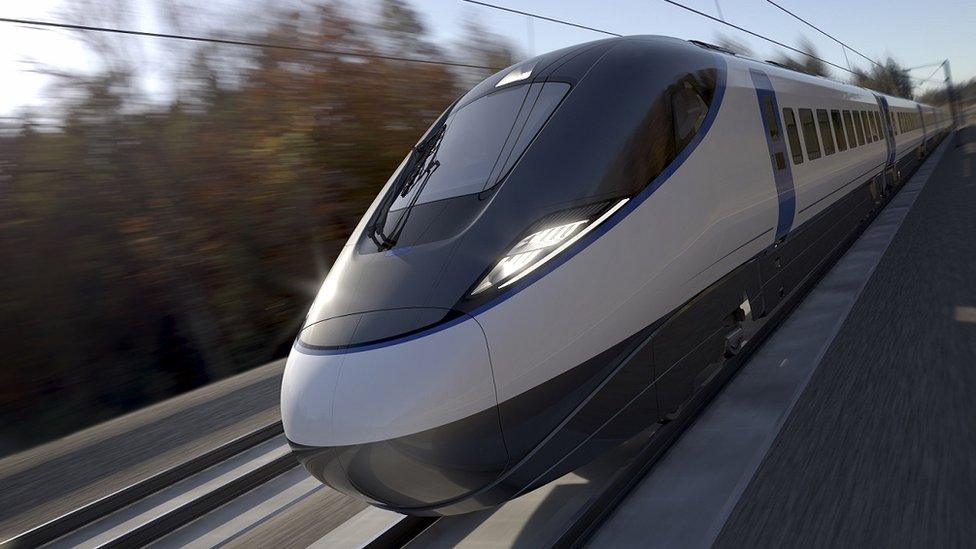Fresh doubt over north Wales rail electrification

There have long been calls for the north Wales mainline to be electrified
- Published
Welsh Secretary Jo Stevens has cast further doubts over the £1bn plan to electrify the north Wales rail mainline, stating she “suspects the money isn’t there".
The new Labour UK government is reviewing all infrastructure plans, including rail projects, amid a major spending review prompted by a £22bn gap in public finances.
The north Wales electrification plan was a key part of the previous Conservative government’s transport proposals.
However, questions have arisen about its feasibility, as no formal development or feasibility work has been undertaken since 2013.
Plans for electrification of the north Wales rail mainline were first announced last October by then prime minister Rishi Sunak, with a "cast-iron" guarantee from one of his ministers.
He said the funding would come from the cancellation of HS2 high speed rail between Birmingham and Manchester.
However, National Rail has not received a “remit letter” from the Department for Transport, which is essential for confirming that funding is available and the project can proceed.
Rail infrastructure is not devolved so it is the responsibility of the UK not Welsh government.
On Monday, chancellor Rachel Reeves announced a spending review, claiming she had discovered a £22bn shortfall in the public finances - a claim the Conservatives have strongly rejected.
As part of this review, Transport Secretary Louise Haigh is examining all projects within her portfolio.
Her Cabinet colleague, Welsh Secretary Jo Stevens, told BBC Radio Wales Breakfast the previous Tory government had “cooked the books”.
On the funding for the north Wales mainline, she said she was “very, very suspicious of the £1bn pound announcement” made by the Conservatives.
“We have to see whether or not there's actually any money there. I rather suspect that there isn't, because there was no explanation when the Conservatives made that announcement as to how they were going to pay for it and that will form part of the review that the transport secretary is undertaking,” she said.
Stevens added: “If there's no money there we can't do it. I mean, it's like any householder, any business - government is the same. If the money's not there, you can't pay for it.”
Additionally, questions have been raised by BBC Wales about whether £1bn would be sufficient for the project, with industry sources estimating that an additional £500m might be needed.
It is understood stakeholder meetings took place early in 2024, but that since then little has progressed.
Plaid Cymru’s Westminster leader Liz Saville Roberts responded to Jo Stevens' comments saying: “If the Secretary of State for Wales can't be fighting for the corner of Wales, at a time when we need to be looking at our fossil fuel use and transport, it is deeply depressing to think about”.
Analysis by Gareth Lewis, BBC Wales political editor
In a sense nothing has changed. A scheme that appeared highly unlikely to happen is still unlikely to happen.
Back in June on the day of the Conservatives’ Welsh general election manifesto launch in Conwy county, BBC Wales revealed the electrification plan had received no funding or even an official go-ahead from the UK government.
It was an awkward moment for the then prime minister Rishi Sunak, who nonetheless insisted it would happen.
But today is significant because Jo Stevens is all but confirming that the money to electrify the railway line isn’t - and never was - there.
The new Labour government is looking at rail infrastructure in Wales, but any announcements will have to wait until they’ve looked at the books.
None of this resolves the urgent need for upgrade work to Wales’ rail network. Both Labour and the Conservatives agree on that.
The problem is how to arrive at that destination.
Related topics
- Published21 June 2024

- Published5 October 2023

- Published4 October 2023
